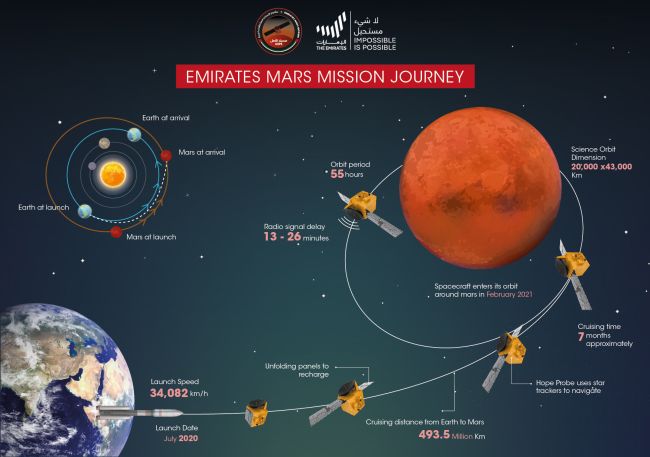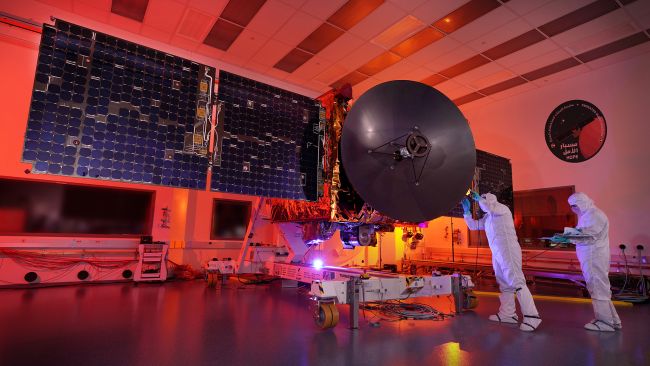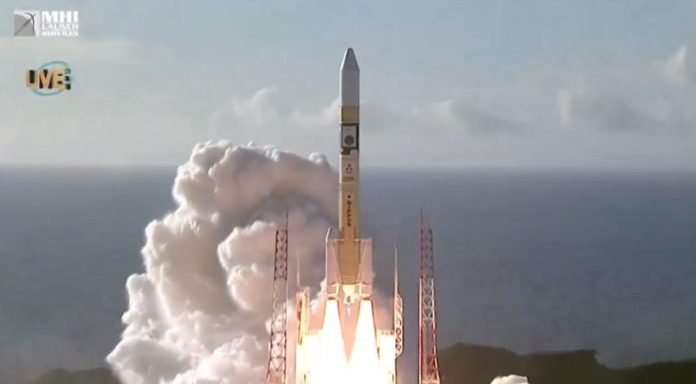A United Arab Emirates spacecraft rocketed into blue skies from a Japanese launch center Monday at the start of a seven-month journey to Mars on the Arab world’s first interplanetary mission.
The liftoff of the Mars orbiter named Amal, or Hope, starts a rush to fly to Earth’s neighbor that is scheduled to be followed in the next few days by China and the United States.
At the space center in Dubai, people watching were transfixed by the liftoff, then cheered and clapped, with one woman with offering a celebratory cry common for weddings.

Amal blasted off from the Tanegashima Space Center aboard a Mitsubishi Heavy Industries’ H-IIA rocket on time at 6:58 a.m. after being delayed five days by bad weather.
Amal is set to reach Mars in February 2021, the year the UAE celebrates 50 years since the country’s formation. In September that year, Amal will start transmitting Martian atmospheric data, which will be made available to the international scientific community, Sharaf said.
“The UAE is now a member of the club and we will learn more and we will engage more and we’ll continue developing our space exploration program,” UAE Space Agency chief Mohammed Al Ahbabi told a joint online news conference from Tanegashima.
“It was great to see everything going according to schedule today. It looks like things are all on track. It’s a huge step in terms of space exploration to have a nation like the UAE taking that giant leap to send a spacecraft to Mars,” astronomer Fred Watson said. “Being on route to a planet like Mars is an exceptional achievement.”

A newcomer in space development, the UAE has successfully put three Earth observation satellites into orbit. Two were developed by South Korea and launched by Russia, and a third – its own – was launched by Japan.
A successful mission to Mars would be a major step for the oil-dependent economy seeking a future in space, coming less than a year after the launch of the first UAE astronaut, Hazzaa Ali Almansoori. He spent over a week at the International Space Station last fall.
The UAE has set a goal to build a human colony on Mars by 2117.
For its first Mars mission, the UAE chose partners instead of doing it all on its own.
The Amal spacecraft, along with its launch, cost $200 million, according to Sharaf. Operation costs at Mars have yet to be divulged.





